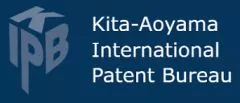The Japan Patent Office has relaxed the requirements for requesting recovery of IP applications after the expiry of a time limit. Applicable procedures include Paris Priority, PCT Entry, Examination, translations and renewals. The rate of recovery for these and other procedures is expected to rise significantly as a result.
The new rule coincides with the ending of the emergency recovery measures relating to the impact of Covid-19 after the Japanese government downgraded the severity of the virus in May 2023.
New recovery requirement: "unintentional reasons"
Until March 31, 2023, applicants had to provide "legitimate reasons" for failing to meet an expired deadline despite the "due care" expected of professional patent management systems and qualified management staff. Concrete supporting evidence was also required.
The revised rule reduces the burden for recovery to "unintentional" failure. This can include human and management errors. More importantly, supporting evidence is now generally only voluntary rather than mandatory as it was before.
The new remedy applies to deadlines that have expired on or after April 1, 2023. (The stricter "legitimate reasons" condition still applies to expired deadlines before this date.)
Applicable procedures
The following procedures are eligible for recovery if their statutory deadlines have expired due to "unintentional" reasons.
- Submitting translation of foreign language patent applications filed in a foreign language (Patent, UM)
- Submitting translation of an international PCT application for entry into the national phase (Patent, UM)
- Claiming domestic priority based on another application, etc. (Patent, UM)*
- Claiming priority under the Paris Convention (Patent, UM, Design)*
- Request for examination (Patent)
- Delayed payments of patent/registration fees and surcharge (Patent, UM, Design, Trademark)
- Appointment of agent for application by an overseas resident (Patent, UM)
- Application for the renewal of the duration of a trademark right (Trademark)
- Application for the renewal of the duration of a right based on defensive mark registration (Trademark)
Note that some requests may still be denied automatically
– including if the purpose for missing the request for
examination deadline was to delay the examination.
Time limits for requesting recovery
The general time limits for submitting the recovery request are:
(i) Within 2 months from the date the reason for failing to file within the statutory period ceased to exist (i.e. was noticed and rectified), and
(ii) Within 1 year (6 months for trademarks) after the missed deadline.
Priority recovery
- 14 months from the priority date for Paris route applications (i.e. 12 months priority + 2 months)
- 1 month from the translation due date for PCT route.
Late PCT entry in Japan
Recovery will be accepted if the national entry is submitted (i)
within two months (plus two months for translation of the PCT
spec.) from the date the unintentional reason ceased to exist and
(ii) within one year from the national phase deadline.
Recovery request fees under new rules
Since the JPO expects an increase in recovery requests due to the relaxation in rules, the following official surcharge fees have been introduced to discourage more frivolous requests:
Patent: JPY212,100
Utility Model: JPY21,800
Design: JPY24,500
Trademark: JPY86,400
Procedure for submitting recovery request
The applicant should submit:
(a) Submit a statement explaining why they could not proceed within the statutory period,
(b) Provide the date when the applicant became able to proceed with the missed procedure.
(c) Pay the relevant request fee.
Ask KIPB
Although the temporary easing of recovery procedures during COVID-19 has ended, the new "unintentional reasons" rule will make standard recovery requests much easier than before the pandemic.
Applicants were previously discouraged from seeking remedy for missed deadlines because of the onerous nature of the process and the 80-90% failure rate. Under the new rule, since recovery is likely to be successful in the majority of legitimate cases, the procedure will become a staple in the Japanese intellectual property landscape.
Originally Published 04 July 2023
The content of this article is intended to provide a general guide to the subject matter. Specialist advice should be sought about your specific circumstances.

